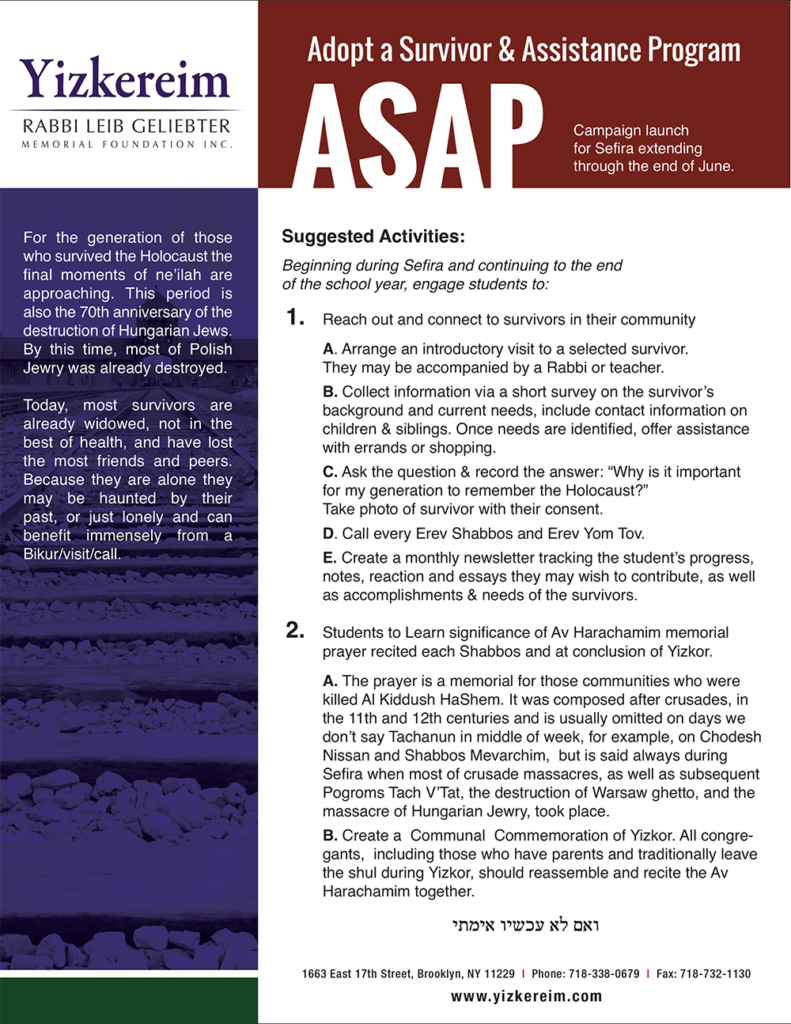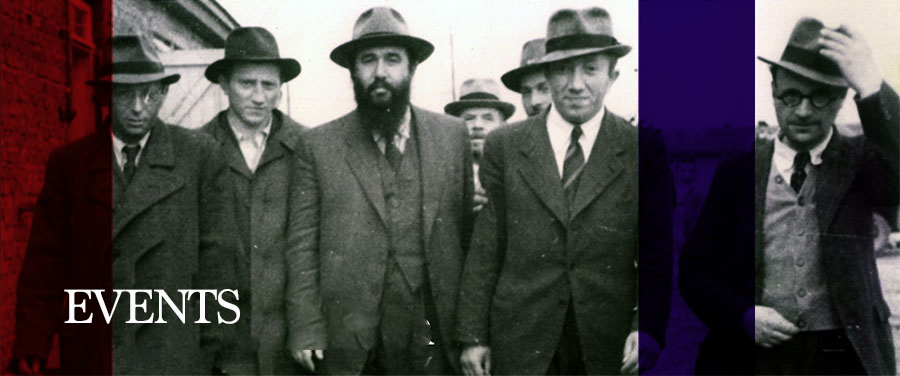For the generation of those who survived the Holocaust the final moments of ne’ilah are approaching. This period is also the 70th anniversary of the destruction of Hungarian Jews. By this time, most of Polish Jewry was already destroyed.
Today, most survivors are already widowed, not in the best of health, and have lost the most friends and peers. Because they are alone they may be haunted by their past, or just lonely and can benefit immensely from a Bikur/visit/call.
Suggested Activities:
Beginning during Sefira and continuing to the end
of the school year, engage students to:
- Reach out and connect to survivors in their community
- Arrange an introductory visit to a selected survivor.
They may be accompanied by a Rabbi or teacher. - Collect information via a short survey on the survivor’s
background and current needs, include contact information on
children & siblings. Once needs are identified, offer assistance
with errands or shopping. - Ask the question & record the answer: “Why is it important
for my generation to remember the Holocaust?”
Take photo of survivor with their consent. - Call every Erev Shabbos and Erev Yom Tov.
- Create a monthly newsletter tracking the student’s progress,
notes, reaction and essays they may wish to contribute, as well
as accomplishments & needs of the survivors.
- Arrange an introductory visit to a selected survivor.
- Students to Learn significance of Av Harachamim memorial
prayer recited each Shabbos and at conclusion of Yizkor.- The prayer is a memorial for those communities who were
killed Al Kiddush HaShem. It was composed after crusades, in
the 11th and 12th centuries and is usually omitted on days we
don’t say Tachanun in middle of week, for example, on Chodesh
Nissan and Shabbos Mevarchim, but is said always during
Sefira when most of crusade massacres, as well as subsequent
Pogroms Tach V’Tat, the destruction of Warsaw ghetto, and the
massacre of Hungarian Jewry, took place. - Create a Communal Commemoration of Yizkor. All congregants,
including those who have parents and traditionally leave
the shul during Yizkor, should reassemble and recite the Av
Harachamim together.
- The prayer is a memorial for those communities who were




